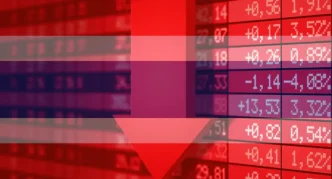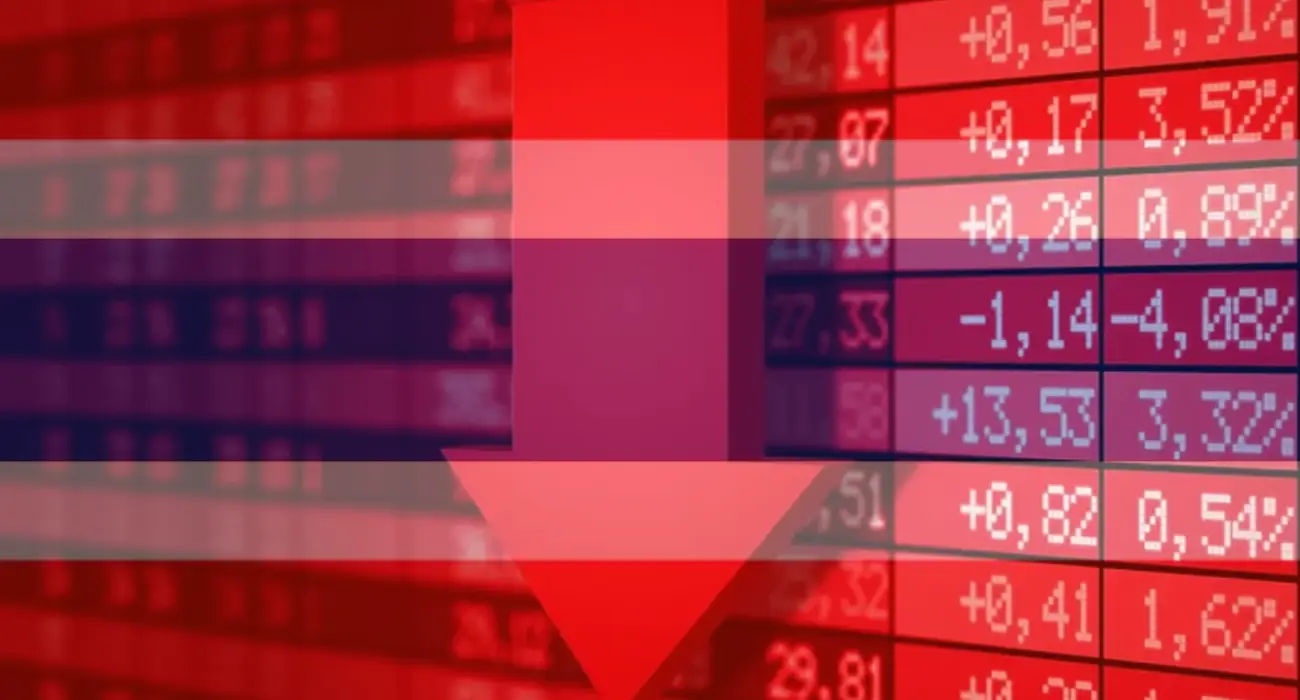Bangkok’s Stock Exchange of Thailand (SET) experienced another day of tepid trading on June 18, 2025, with the SET Index closing marginally lower at 1,113.58, down 0.91 points. The lackluster performance, marked by thin trading volumes and a narrow range of movement, reflects a broader sense of investor caution driven by persistent geopolitical tensions and a lack of fresh economic catalysts. With total trading value recorded at 27,494.32 million Thai Baht (US$771 million), analysts warn that the market may remain stuck in a holding pattern without significant positive developments.
Subdued Trading Reflects Investor Indecision
The SET Index oscillated within a tight band throughout the trading session, peaking at an intraday high of 1,119.13 points and dipping to a low of 1,112.25 points. This narrow range—barely five points on either side of the opening—underscores a market grappling with indecision. Wijit Arayapisit, an investment strategist at Liberator Securities, described the current trading environment as “subdued,” noting that daily volumes have hovered around 20,000 million Thai Baht (US$561 million) in recent sessions. “Investors are hesitant to make bold moves amid multiple uncertainties,” he said.
Among the most actively traded shares, performance was mixed. PTT Exploration and Production (PTTEP) closed at 110.00 Thai Baht (US$3.09), down 2.00 Baht (1.79%), while Advanced Info Service (ADVANC) remained unchanged at 282.00 Baht (US$7.91). Airports of Thailand (AOT) emerged as a standout, gaining 1.25 Baht (4.59%) to close at 28.50 Baht (US$0.80). Kasikornbank (KBANK) also saw a modest uptick, rising 1.00 Baht (0.66%) to 153.50 Baht (US$4.31), while CP All Public Company (CPALL) stayed flat at 45.00 Baht (US$1.26).
Geopolitical Tensions Weigh on Sentiment
A key factor dragging on market sentiment is the ongoing uncertainty in the Middle East. Reports suggesting that Iran may be open to de-escalating tensions and resuming nuclear talks with the United States have been met with skepticism, particularly given Israel’s firm stance against compromise. The volatility in crude oil prices, which dipped overnight before rebounding on the morning of June 18, has further compounded unease among Thai investors, given the country’s reliance on energy imports.
Beyond international concerns, domestic challenges are also at play. Thailand’s economic recovery remains uneven, with sectors like manufacturing and exports facing headwinds from global trade disruptions. Analysts point to the lack of clarity on trade policies and potential escalations in trade wars as additional risks. Moreover, speculation around a domestic cabinet reshuffle has introduced an element of political uncertainty, with investors keenly awaiting signals on future economic policy directions.
Tourism Sector Offers a Glimmer of Hope
Amid the broader market gloom, Thailand’s tourism sector provided a rare bright spot. The government’s recent launch of the “Thai Thiao Kon La Krueng” (Thai Travel Co-payment) scheme, designed to support tourism operators through subsidies, has bolstered confidence in related stocks. Central Plaza Hotel (CENTEL) surged 4%, Minor International (MINT) rose 3%, and Erawan Group (ERW) gained 2%, reflecting optimism about a potential rebound in tourist arrivals.
However, not all tourism-related stocks benefited uniformly. Airports of Thailand (AOT), while posting gains, continues to face specific challenges, including operational constraints and fluctuating international travel demand. Nevertheless, the sector’s performance highlights the Thai government’s efforts to revitalize an industry that has long been a cornerstone of the national economy, contributing significantly to GDP and employment.
The tourism sector’s resilience is particularly notable given Thailand’s ambitious targets to attract millions of visitors in 2025. Pre-pandemic, the country welcomed nearly 40 million tourists annually, generating substantial foreign exchange earnings. While current figures remain below those peaks, initiatives like the co-payment scheme signal a determination to reclaim lost ground. Industry experts suggest that sustained policy support, coupled with global travel recovery, could position tourism as a key driver of economic growth in the coming quarters.
Economic and Policy Outlook
Looking ahead, analysts remain cautious about the SET Index’s near-term trajectory. Wijit Arayapisit forecasts that the market will likely continue trading within its current range, with support levels between 1,100 and 1,110 points and resistance at 1,130 points. “Breaking through resistance will be challenging without a clear positive catalyst,” he noted. Potential triggers for momentum include outcomes from the US Federal Reserve’s upcoming meeting, which could influence global monetary policy expectations, as well as developments in Middle Eastern geopolitics and clarity on international trade disputes.
Domestically, the anticipated cabinet reshuffle is seen as a critical factor. Investors are particularly focused on whether the reshuffle will bring policy continuity or signal shifts in economic priorities. Thailand’s economy, heavily dependent on exports and tourism, remains vulnerable to external shocks, making government stability and strategic policymaking essential for market confidence.
Another area of concern is the persistently low trading volumes, which Wijit described as needing a “significant unlocking factor” to return to normal levels. Such a factor could emerge from a resolution to geopolitical tensions, a robust stimulus package, or unexpectedly positive economic data. Until then, the SET Index appears poised to linger in its current doldrums, reflecting broader uncertainties that have gripped global markets in 2025.
Broader Implications for Thailand’s Economy
The lackluster performance of the Thai stock market is emblematic of wider challenges facing Southeast Asia’s second-largest economy. Thailand has struggled to regain pre-pandemic economic momentum, with structural issues such as an aging population, income inequality, and reliance on volatile sectors like tourism and exports hampering growth. The SET Index’s inability to break out of its narrow trading range mirrors these deeper economic constraints, raising questions about the sustainability of recovery efforts.
Geopolitical risks, particularly in the Middle East, pose indirect but significant threats to Thailand’s economic stability. As a net importer of oil, the country is sensitive to fluctuations in global energy prices, which can drive inflation and squeeze household budgets. Moreover, any escalation in tensions could disrupt international trade routes, further impacting Thai exporters already grappling with supply chain disruptions and rising costs.
On the domestic front, political uncertainty remains a perennial concern. Thailand’s history of political instability, including frequent changes in government and policy direction, has often unsettled investors. The current speculation around a cabinet reshuffle, while not uncommon, adds another layer of unpredictability at a time when economic clarity is sorely needed. Analysts suggest that a transparent and business-friendly policy framework post-reshuffle could help restore confidence, but the outcome remains uncertain.
Global Context and Comparative Analysis
Thailand’s market challenges are not unique but reflect a broader trend of caution across global financial markets in 2025. Major indices in the United States, Europe, and Asia have similarly exhibited volatility amid geopolitical uncertainties and mixed economic signals. The US Federal Reserve’s upcoming policy decisions, expected to address inflation and interest rate trajectories, are being closely watched by investors worldwide, including in Bangkok. A hawkish stance could tighten global liquidity, putting further pressure on emerging markets like Thailand.
Compared to its regional peers, Thailand’s stock market performance has been middling. While markets in Singapore and Malaysia have shown relative resilience, buoyed by strong technology and financial sectors, others like Indonesia and the Philippines have faced similar headwinds due to commodity price swings and domestic policy uncertainties. For Thailand, the tourism sector’s nascent recovery offers a potential differentiator, but sustained growth will depend on both domestic execution and favorable global conditions.
Investor Sentiment and Future Prospects
Investor sentiment in Thailand remains cautious, with many adopting a wait-and-see approach. The absence of significant buying or selling pressure, as evidenced by the SET Index’s tight trading range, suggests that market participants are holding off on major decisions until clearer signals emerge. This hesitance is compounded by the lack of robust domestic economic data or policy announcements that could spur activity.
As Thailand navigates these uncertain waters, the coming days and weeks will be critical. Developments in the Middle East, outcomes from the US Federal Reserve meeting, and progress on domestic reforms will all shape the SET Index’s trajectory. For now, Bangkok’s stock market remains a barometer of broader global and regional anxieties, with investors hoping for a catalyst to break the current deadlock. Whether that catalyst will materialize—and what form it might take—remains an open question as the year progresses.
















